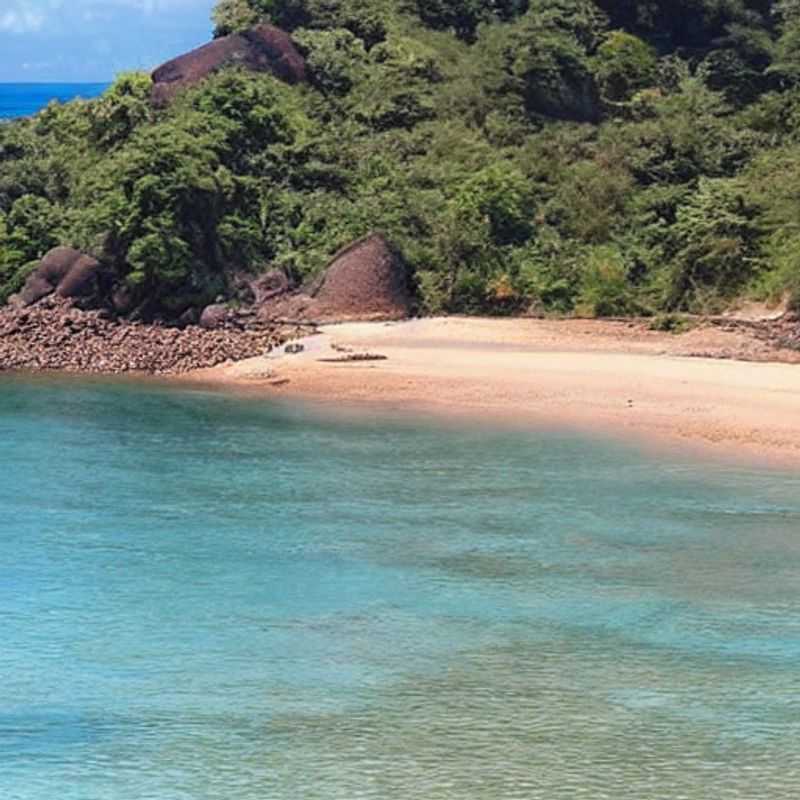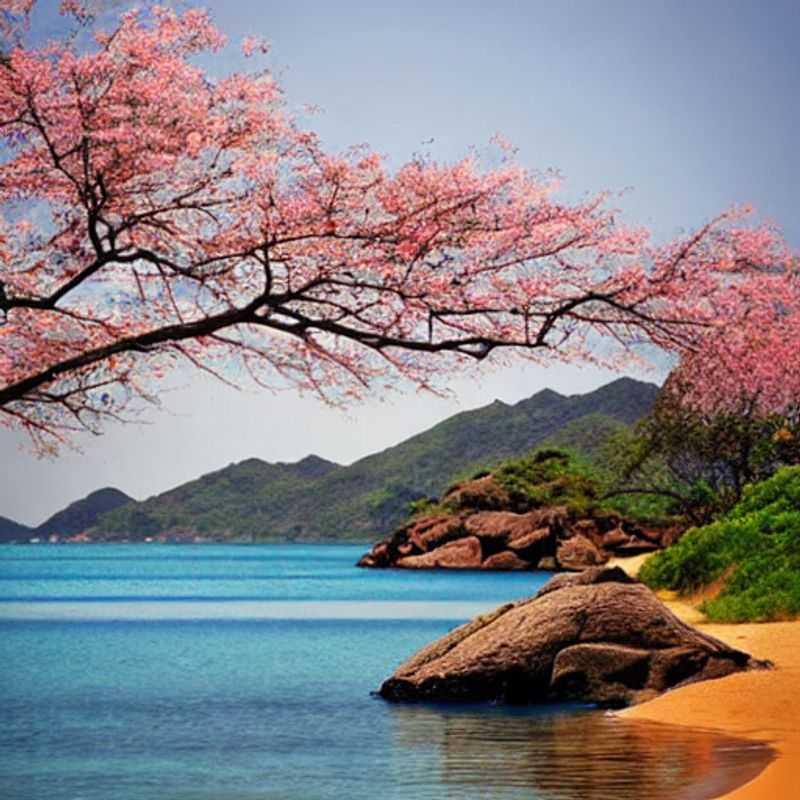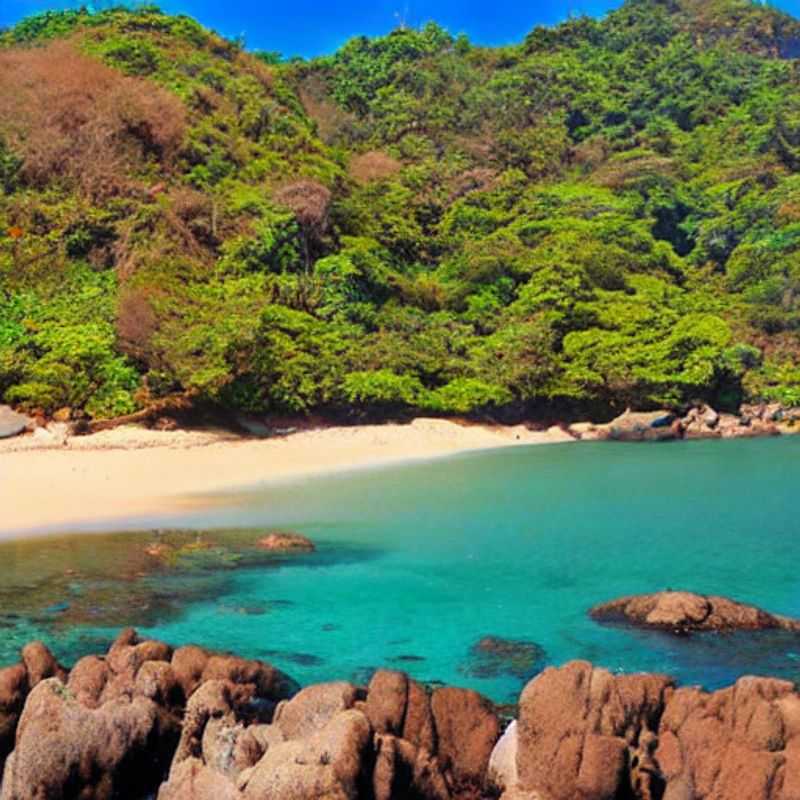Lake Malawi Adventure: Your Top 8 Safety Tips for a Smooth Trip

Backpacking Lake Malawi in 2026: Your Essential Safety Guide & Top Tips
Backpacking Lake Malawi in 2026 offers an incredible adventure filled with stunning natural beauty and vibrant culture. As you plan your journey, prioritizing safety and arming yourself with essential tips will ensure a smooth and memorable experience. Lake Malawi is known for its crystal-clear waters, pristine beaches, and diverse aquatic life, making it a paradise for snorkelers and divers. When it comes to safety, always stay aware of your surroundings, especially in busier towns or markets. It's advisable to avoid walking alone at night and to use reputable taxi services. Regarding health, ensure you are up-to-date with vaccinations, including Hepatitis A and Typhoid, and take precautions against malaria by using insect repellent and considering prophylactic medication. Drinking bottled or treated water is crucial to prevent waterborne illnesses. Financially, carrying a mix of cash (Malawian Kwacha) and cards is recommended, and inform your bank of your travel plans to avoid any issues. When interacting with locals, respect their customs and traditions, and a few phrases in Chichewa will go a long way in building positive connections. Accommodation options range from budget-friendly hostels and guesthouses to more comfortable lodges, with many situated directly on the lake. Book popular accommodations in advance, especially during peak season. Transportation around the lake often involves local buses, minibuses, and boats, so factor in potential delays and embrace the local pace of travel. Pack light and versatile clothing suitable for a warm climate, including swimwear, sun protection (hat, sunscreen, sunglasses), and a light rain jacket. A basic first-aid kit is also a wise addition. Finally, embrace the unexpected and be open to spontaneous adventures; these are often the moments that create the most cherished memories of backpacking Lake Malawi.

You may also like
Lake Malawi's Secrets: A Guide to Geopolitical Goodies (and Staying Safe!)
Is Lake Malawi Safe? Unpacking the Politics & Packing Your Patience (and Pepper Spray!)
Exploring Malawi: Myth, Mystery, and Malaria – A Balanced Approach to Adventure
Beneath the Surface: Geopolitical Stability & Practical Safety Tips for Your Lake Malawi Trip
From Legends to Logistics: Navigating Malawi's Waters (and its Bureaucracy!)
Malawi's Magical Waters & Murky Politics: A Tourist's Guide to Staying Safe & Sound
Sun, Sand, and Stability? Your Expert's Guide to a Safe Lake Malawi Adventure
The Curious Case of the Calm Lake: Decoding Malawi's Geopolitics & Staying Safe
Beyond the Beaches: A Journey into Malawi's History, Politics, and Practical Safety
Lake Malawi: Adventure Awaits, but Know Before You Go! (Safety First!)
Jambo, fellow adventurers! So, you four intrepid souls – two couples – are planning a spring trip to Lake Malawi, huh? Excellent choice! Let your safari guide, yours truly, illuminate the path to an unforgettable Malawian experience. We'll be focusing on the geopolitical stability of the region, because let's face it, knowing you're safe is half the fun (the other half is the incredible views and nyama choma!).
Geopolitical Stability: Lake Malawi's region enjoys relative peace and stability. Malawi itself is a democratic nation, and while political tensions occasionally exist, they rarely escalate to affect tourists. However, stay updated on current affairs before and during your trip through reputable news sources. This is standard advice for any international travel.
Spring in Malawi (September to November) is delightful. Expect warm, sunny days perfect for swimming and watersports, with comfortable evenings. The weather is generally predictable, making planning a breeze. Pack light clothing, swimwear, sunscreen, and insect repellent – the Malawian sun is no joke!
Cultural Immersion: Malawi is a vibrant place! The Chewa people, the largest ethnic group, are known for their lively traditions. You might encounter traditional dancing, particularly at village gatherings. The music is infectious; expect to hear lots of upbeat rhythms incorporating drums and marimbas. The people are incredibly welcoming and friendly. A simple "Moni" (hello) goes a long way.
Food Glorious Food: Prepare your taste buds for a treat! Nyama choma (grilled meat) is a must-try, often served with nsima (a thick maize porridge). Chambo, a type of fish from Lake Malawi, is another local delicacy. Expect fresh produce, too, such as mangoes, bananas, and pawpaws. Don't be shy to try street food – it's generally safe and delicious (but always exercise caution and choose vendors with a lot of business!).
Accommodation & Transportation: Budget-friendly guesthouses and lodges are widely available around the lake. Expect to pay around $30-$80 per night for a comfortable double room. Internal travel can be done by bus (cheap and cheerful, but can be slow) or by hiring a driver (more expensive but much faster). A private driver for a day might cost around $50-$100. Consider hiring a guide to enhance your experience.
Activities & Costs: A boat trip on the lake costs approximately $30-$50 per person. Entrance fees to national parks vary, but expect to pay around $10-$20 per person. A delicious meal at a local restaurant could cost you around $10-$20 per person. A typical day's budget for food and drink will be around $30 per person.
Sample Itinerary (4 days/3 nights): Day 1: Arrive, check into your accommodation, explore the local markets. Day 2: Boat trip on the lake, swim, relax. Day 3: Visit a local village, experience Chewa culture. Day 4: Depart. Adjust this based on your preferences.
Total Estimated Cost (per couple): Accommodation ($240-$480), Activities ($200-$300), Food & Drink ($360), Transportation ($100-$200). Total: $900 - $1480 per couple (approximately). This is a rough estimate, and your actual costs may vary depending on your choices. Remember to factor in flights and travel insurance.
Safety Tips: Be aware of your surroundings, particularly at night. Avoid displaying expensive jewelry or electronics. Use reputable transportation services. Drink bottled water. Most importantly, have fun and embrace the Malawian spirit! Always check travel advisories before you go.
So there you have it, folks! A taste of what awaits you in the stunning, relatively stable, and incredibly welcoming region of Lake Malawi. Hakuna matata, and happy travels!

You may also like
Lake Malawi Backpacking: 2026 Travel Realities You MUST Know
Planning a backpacking adventure to Lake Malawi in 2026 promises an unforgettable experience, but a little foresight goes a long way. Understanding the realities of travel in this beautiful nation is crucial for a smooth and enjoyable trip. Connectivity can be intermittent, so downloading offline maps and essential information beforehand is highly recommended. While English is widely spoken in tourist areas, learning a few basic Chichewa phrases will greatly enhance your interactions with locals and show your respect for their culture. Expect infrastructure to be developing, meaning roads might be rough in places, and travel times can be longer than anticipated. Embrace the slower pace; it's part of the charm.
When it comes to budgeting, Malawi is generally affordable for backpackers, but prices for imported goods or specialized activities can be higher. It’s wise to carry a mix of cash (Malawian Kwacha is essential for local markets and smaller guesthouses) and a reliable card for larger expenses. Be aware of visa requirements well in advance of your travel date, as these can vary depending on your nationality. When it comes to health, malaria is present in Malawi, so consult your doctor about appropriate precautions and mosquito repellent. Packing light, breathable clothing is key for the warm climate, and don't forget a good sun hat and high SPF sunscreen. Finally, the people of Malawi are renowned for their hospitality; be open to engaging with them, and you'll discover the true heart of this incredible destination.